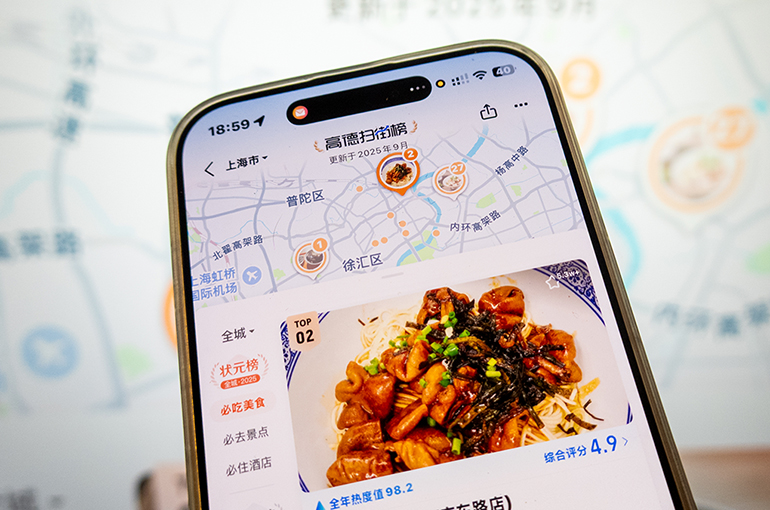Select Language:
Alibaba, a major player in China’s internet industry, has rolled out a significant update to its navigation app, incorporating an AI-driven feature allowing users to rate local businesses—similar to the review system on a well-known rival app by another major competitor.
With this new feature, users can share their opinions on restaurants, hotels, tourist spots, and other local services. The company announced yesterday that it will provide incentives exceeding 1 billion CNY (around USD 140 million) to encourage roughly 10 million customers to spend on rides, dining, and various other services.
The project, initiated in June, has been quietly expanding, now covering more than 1.6 million offline service providers across over 300 Chinese cities, including over 870,000 restaurants, 230,000 hotels, and nearly 50,000 scenic locations.
The new review system focuses on user behavior patterns rather than mere preferences or favorites, emphasizing customer loyalty. It is designed to remain non-commercial and purely user-focused, according to the app’s CEO.
This initiative aims to boost the app’s market share within the local services segment, according to a market analyst specializing in emerging tech trends. Its integration with the navigation platform, rather than the company’s other shopping apps, is due to the maps and navigation data distinctions that the navigation app offers which other competitors lack.
On the same day, another platform announced efforts to regain quality in its food delivery business amid fierce competition in China’s food delivery scene. It plans to use AI models to analyze users’ demands based on review data, aiming to eliminate fake reviews and provide more reliable information. Additionally, it will distribute 25 million large-value coupons to incentivize high-quality food orders.
Industry analysts believe this move could improve customer retention and enhance the quality of merchant partnerships, creating synergies with existing food delivery services. However, the success of this initiative remains uncertain, as most users currently prefer dining in, and encouraging app-based orders will take time.
The sector has experienced significant upheaval, with a major competitor suffering heavy losses during recent battles in the food delivery market, reporting an 89% drop in net profit for the first half of the year despite a slight revenue increase.
Meanwhile, the stock performance shows that shares of the leading platform increased by 1.8% to HKD 145.30 (around USD 18.66), whereas its rival’s shares dropped by 4.9% to HKD 96.75 (about USD 12.42). Its U.S.-listed shares closed slightly lower at USD 143.93 the previous day.







